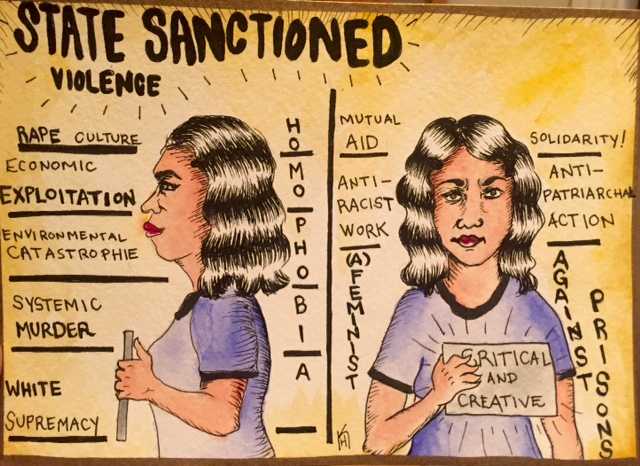This essay appears in the current anarcha-feminisms issue of Perspectives, N. 29, available here, from AK Press!
Tiana is crying. She walks into the room, a large, powerful woman wearing a bland ensemble of a faded green top with similarly colored pants. The silent tears on her face are enough to quiet the many scattered conversations happening among us. Many of us try to make eye contact with Tiana, waiting for her to tell us what is wrong. She doesn’t speak. She doesn’t look at anyone. She sits and stares.
We’re all sitting in a classroom in a women’s prison. The space is filled with remedial educational materials for GED students, collages with magazine cutouts of models and vacation getaways, and clichéd motivational posters that inspire the incarcerated to become “ambitious” and “dedicated.” In the moments of silence that follow Tiana’s entrance, I’m reminded of the poster on the wall that lists the amendments to the US Constitution. On this poster the legendary constitutional change, the thirteenth amendment, only includes the part that formally abolishes slavery and does not include the part that says, “Except as a punishment for crime whereof the party shall have been duly convicted.” Every time I encounter suffering in that room, including my own, I remember that sterilized, whitewashed version of history hanging on the wall and cringe. And I rage, quietly.

